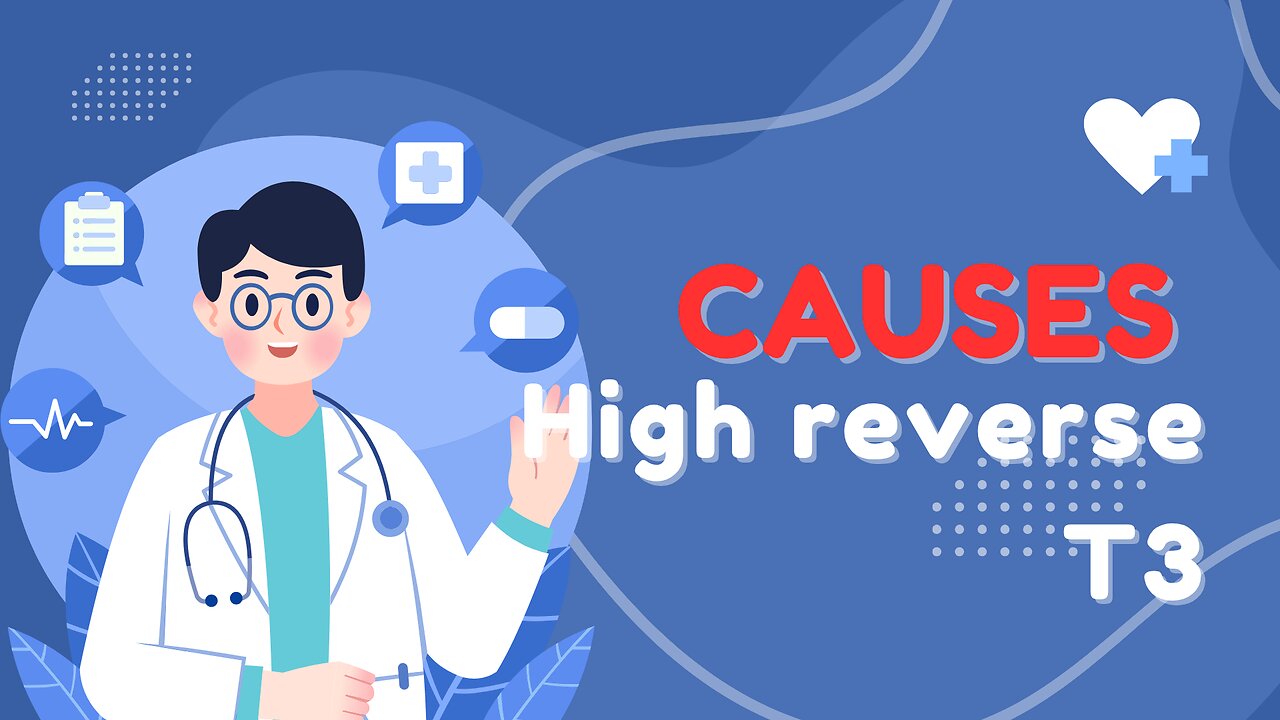Premium Only Content

causes of high reverse T3 levels
High reverse T3 (rT3) occurs when the body converts too much thyroxine (T4) into its inactive form instead of the active hormone triiodothyronine (T3). This condition can contribute to hypothyroidism symptoms such as fatigue, brain fog, weight gain, and cold intolerance despite “normal” thyroid lab results. Elevated rT3 is often linked to stress, chronic illness, inflammation, nutrient deficiencies, liver dysfunction, adrenal fatigue, and prolonged dieting.
Understanding high rT3 levels is crucial for patients struggling with unresolved thyroid issues, especially when standard TSH, T3, and T4 tests do not explain persistent symptoms. Proper testing through a reverse T3 blood test can reveal hidden thyroid imbalances and help guide treatment options, such as addressing adrenal health, cortisol regulation, nutrient support, and lifestyle changes.
By learning the causes, symptoms, and treatment options for high reverse T3, patients can work with their healthcare provider to restore thyroid balance, improve metabolism, and regain energy.
---
LSI Keywords (Latent Semantic Indexing)
Reverse T3 dominance
High rT3 causes
Reverse T3 thyroid test
Thyroid hormone conversion issues
High rT3 symptoms
Reverse T3 and hypothyroidism
T4 to T3 conversion problems
Stress and thyroid imbalance
Adrenal fatigue and reverse T3
Functional medicine thyroid testing
---
Suggested Internal SEO Links (link to your own content)
Low TSH and Thyroid Function
Hashimoto’s Thyroiditis Causes
Thyroid Lab Tests Explained
Foods That Support Thyroid Health
Natural Ways to Reduce Inflammation in Hashimoto’s
---
Suggested External SEO Links (authority sources)
American Thyroid Association – Thyroid Hormones
National Library of Medicine – Reverse T3 and Thyroid Function
Endocrine Society – Thyroid Disorders
-
 DVR
DVR
Bannons War Room
6 months agoWarRoom Live
35.1M8.23K -
 LIVE
LIVE
The Shannon Joy Show
3 hours agoThe Truth Is Coming Out About Vaccine Death. Ron Johnson’s Bombshell Hearing & Courtaney Turner!
287 watching -
 1:00:35
1:00:35
VINCE
3 hours agoBiden Jobs Reports Were Found Fake, AGAIN | Episode 122 - 09/10/25
165K199 -
 LIVE
LIVE
LFA TV
6 hours agoLFA TV ALL DAY STREAM - WEDNESDAY 9/10/25
4,638 watching -

Caleb Hammer
4 hours agoMy Lawyer Had To Step In | Financial Audit
14.2K3 -
 1:28:42
1:28:42
The Big Mig™
4 hours ago👽UFO’s🛸 Unmasked, Govt’s Shocking Reveal!👽
14K8 -
 LIVE
LIVE
The State of Freedom
4 hours ago $0.37 earnedFLF: #17 Unraveling the Truth at Ground Zero w/ Brad Zerbo
78 watching -
 1:47:04
1:47:04
Dear America
4 hours agoThis Was Worse Than George Floyd! A Line Has Been Crossed! This Is War!
108K113 -
 2:25:45
2:25:45
LadyDesireeMusic
2 hours ago $0.91 earnedLive Piano Request | Change the Culture & Support the Arts
13.3K2 -
 2:06:21
2:06:21
Badlands Media
8 hours agoBadlands Daily Sept. 10
41.2K18